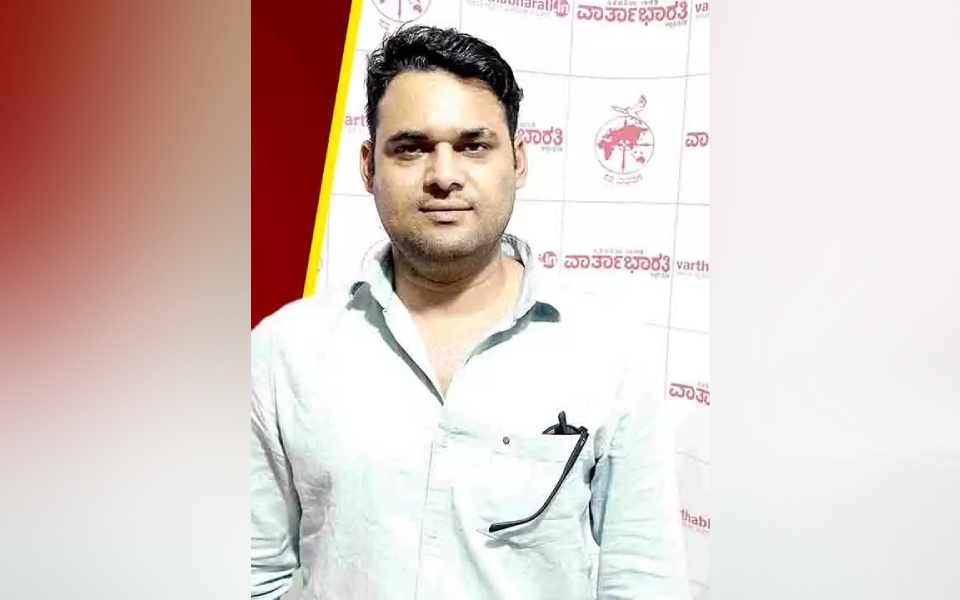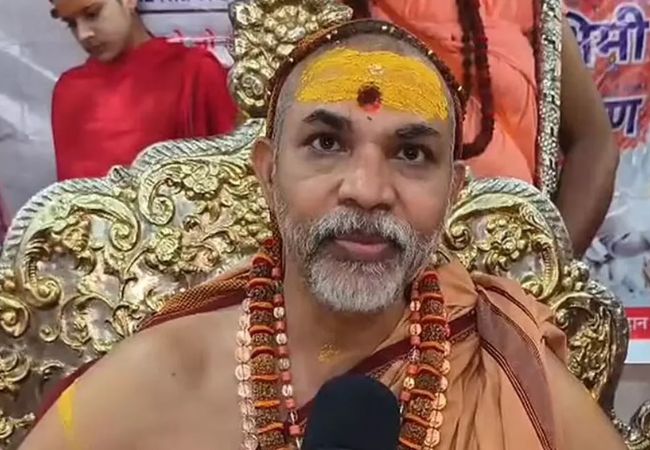The Billava community, once considered a marginal group by the upper caste in the 19th century and deprived of access to temples, education, and social progress, has undergone remarkable transformation. Today, they are strong academically, socially, and economically. This transformation, according to Dr. Mukesh Kumar, Senior Fellow and Assistant Professor at the University of Zurich, Switzerland, is largely attributed to the influence of Brahmashri Narayana Guru, a spiritual leader and social reformer.
During an exclusive interview with Vartha Bharati, Dr. Kumar, who is conducting research on the Billava community, shared insights into their journey of empowerment and the key factors that contributed to their progress. Here are the excerpts of the Interview below.
Q: What is the focus of your current research, and what are the key findings so far?
My research explores the issues of caste, religion, and social mobility among the Billava community. Historically, around 1840, the Billavas were economically and socially marginalized. At that time, the Basel Mission attempted to convert them to Christianity, emphasizing education and economic improvement. However, the teachings of Brahmashri Narayana Guru, who advocated "One caste, one religion, one God," inspired the Billava leaders to unite and establish their own identity without converting.
Narayana Guru’s efforts to promote education and equality through the establishment of temples, such as the Kudroli Gokarnanath Temple in Mangalore, played a pivotal role in the social transformation of the Billava community. His teachings encouraged the community to prioritize education and self-reliance, laying the foundation for their progress.
Q: What did your research reveal about the Basel Mission’s activities in Mangaluru?
The Basel Mission began its work in Mangalore in the mid-19th century with the primary goal of converting people to Christianity. While the number of conversions was relatively small, most converts were from the Billava community. The missionaries emphasized cleanliness, discipline, and complete acceptance of Christianity.
The Basel Mission also introduced education and technical skills, which benefited the Billava community. Schools were established, offering access to education, and German technology brought industrial progress, such as the establishment of tile factories. Despite these efforts, many Billavas chose to remain Hindus, inspired by the teachings of Narayana Guru. His philosophy helped the community maintain its cultural identity while embracing education and economic advancement.
Q: How do you define the current strength of the Billava community in Dakshina Kannada?
The Billava community has grown significantly stronger through the establishment of educational institutions, cooperative societies, and temples inspired by Narayana Guru. Education and economic mobility have been the pillars of their progress.
Over time, many Billava youth migrated to cities like Mumbai and to Gulf countries, contributing to the community’s economic strength. Today, the Billava community is actively involved in various industries and politics. Their institutions provide scholarships and educational resources, ensuring continued progress. The transformation from a marginalized group to a thriving community is remarkable and serves as a model for other communities.
Q: What makes the Billava community unique in your research?
The Billavas are socially and politically conscious and prioritize education and community welfare, drawing inspiration from Narayana Guru’s teachings. While they may align with different political ideologies, their commitment to the progress of their community remains steadfast.
The Billava trusts and organizations are playing a crucial role in uplifting not just their own community but also supporting other marginalized groups. This inclusive approach is a positive step toward achieving social equality.
Q: What interests you most about Dakshina Kannada?
I have been visiting Dakshina Kannada since 2021 to study the Basel Mission. Currently, my research focuses on how the Billava community continues to follow Narayana Guru’s teachings and how this has led to their empowerment.
I am also intrigued by Bhootharadhana (spirit worship), which holds cultural significance in this region. I plan to study this in greater detail during my future visits. Dakshina Kannada’s diversity, blending various religions and cultures, makes it a fascinating area for research.
Q: What are your suggestions for further empowering the Billava community?
The Billava community is already making significant contributions to social, educational, and economic development. Strengthening their cooperative and educational initiatives will further empower not only their own community but also others in rural and marginalized areas.
About Dr. Mukesh Kumar
Dr. Mukesh Kumar is a Senior Fellow and Assistant Professor at the University of Zurich, Switzerland. He completed his BA, MA, and MPhil from Delhi University, and his PhD from the University of Sydney (2019). He is the recipient of prestigious grants, including the Alexander von Humboldt Foundation fellowship (2019–21) and the ETH Zurich Postdoctoral Research Fellowship (2021–23). His research interests include caste, religion, and social mobility; urban religion; and cultural practices. He has authored the book Between Muslim Peer and Hindu Saint: Lal Das and Devotional Culture in North India (Cambridge University Press, 2024) and is a co-editor of works on caste and religion with Leiden University Press.
Let the Truth be known. If you read VB and like VB, please be a VB Supporter and Help us deliver the Truth to one and all.
Lucknow (PTI): The Uttar Pradesh Congress on Wednesday staged a statewide protest demanding a fair and transparent inquiry into the FIR lodged against Swami Avimukteshwaranand Saraswati and those who filed the complaint against him.
In a statement issued here, the party said memorandums addressed to Prime Minister Narendra Modi were submitted through district magistrates in all districts of the state.
Uttar Pradesh Congress spokesperson Manish Hindvi told PTI that the memorandums were handed over through the district administration in all 75 districts.
In the memorandum, the party alleged that Saraswati and his disciples were "unnecessarily harassed and humiliated" by police on the occasion of Amavasya and were prevented from taking a ritual bath (at the Magh Mela). It further alleged that some disciples were manhandled and taken to a police station.
The memorandum also claimed that an FIR was later registered against Saraswati, his disciple Swami Mukundanand Brahmachari and several unidentified persons in a sexual harassment case. It termed the case a "conspiracy" aimed at tarnishing the seer's reputation.
Citing Articles 25 and 26 of the Constitution, the memorandum stated that these provisions guarantee religious freedom and the right of religious denominations to manage their own affairs.
It described the position of shankaracharya held by Saraswati as "one of the highest spiritual posts in Sanatan tradition" and alleged that the entire episode appeared to have been "orchestrated in a planned manner".
"We request that the background of the persons who got the FIR registered be investigated in a transparent manner by a retired high court judge and strict action be taken against them," the memorandum said.
It also sought a "fair and transparent probe" into the allegations levelled against Saraswati so that the truth could be established.
Earlier, Uttar Pradesh Congress president Ajay Rai had told reporters in Varanasi after meeting Saraswati that the party stood firmly with him.
The Congress said it would continue to press for an impartial inquiry into the entire episode.
On February 21, an FIR was lodged in Prayagraj against Saraswati and his disciple Mukundanand Brahmachari on charges of sexually abusing two persons, including a minor, over the past year at a gurukul and religious congregations, including the recently concluded Magh Mela.
Days after he was booked, Saraswati had said on Monday that he would not oppose his arrest and asserted that the "fabricated story" would be exposed sooner or later.
At a press conference on Wednesday, Saraswati alleged that criminals rule in Uttar Pradesh, level allegations and influence investigations, as he denied having any contact with the two persons for whose alleged sexual abuse he has been booked.



_vb_77.jpeg)
_vb_00.jpeg)
